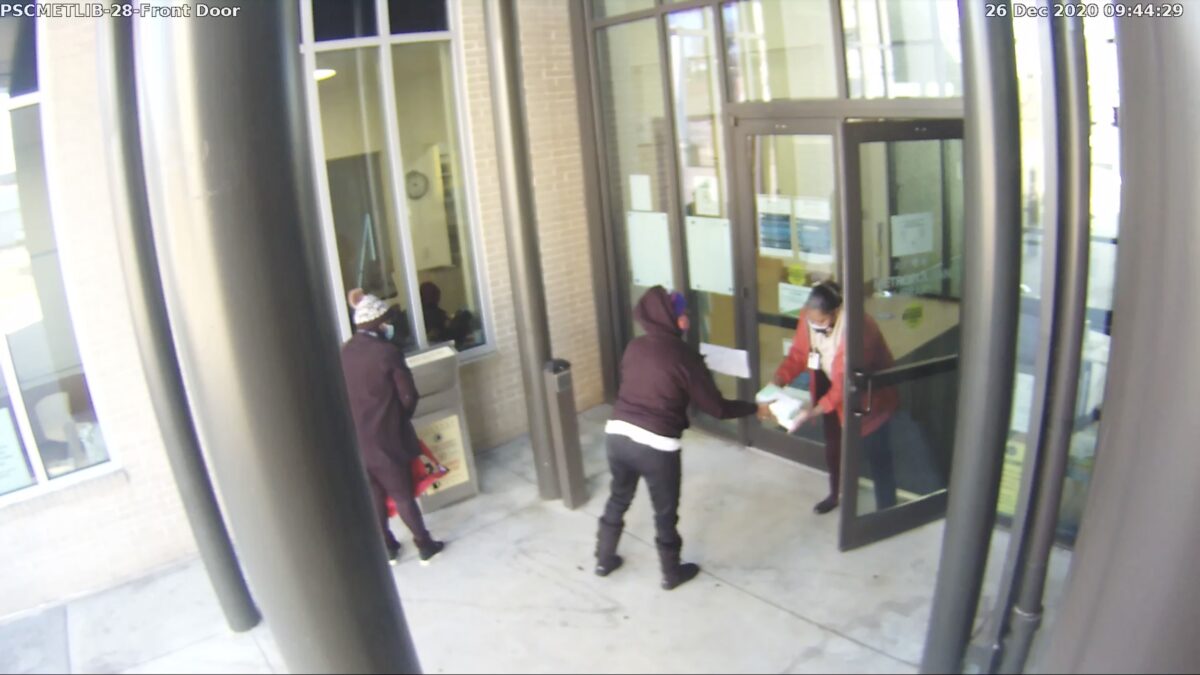Though dozens of media outlets claimed otherwise this week, the Georgia State Elections Board has not debunked any assertions made in the recently released “2000 Mules” documentary.
Elections board members seemed to suggest during a May 17 meeting that they had disproven allegations from the documentary that alleges widespread voter fraud in the 2020 election.
But the board has yet to review any claims made by True the Vote, the organization featured in “2000 Mules.”
As described in the documentary released May 7, Houston-based True the Vote spent a year and a half analyzing cell phone data and dropbox surveillance videos to show patterns of what they call illegal ballot trafficking during the 2020 elections. The nonprofit focused its work in five jurisdictions in five swing states won by Democrat Joe Biden—Georgia, Arizona, Michigan, Pennsylvania, and Wisconsin.
None of the complaints of voter fraud associated with the documentary were taken up at Tuesday’s meeting.
Still, throughout the meeting, three elections board members repeatedly referenced the documentary before hearing evidence from a state investigator, and while discussing three complaints alleging election misconduct.
Two board members repeatedly cautioned against bringing false allegations, with one warning that it could bring penalties.
In an apparent swipe at movie-makers, board member Sara Tindall Ghazal said that “real harm has been caused by these unsupported allegations asserted by individuals seeking to profit off of them.”
But during the meeting, the only matter concerning True the Vote’s complaint was an update on when an investigation can begin.
Georgia Secretary of State General Counsel Ryan Germany said an effort to look into a broad complaint filed by True the Vote in November is on hold until the organization complies with subpoenas issued April 21.
The hold-up centers on True the Vote’s concerns about the safety of their informant, the organizer’s founder, Catherine Engelbrecht, told The Epoch Times. Germany acknowledged that those are “genuine concerns.”
The informant, known as John Doe in the True the Vote complaint to the state, provided details about election fraud that sparked the organization’s investigation, Engelbrecht said. Revealing his identity could put him in grave danger, she said.
More than anything, Engelbrecht wants the information her organization uncovered to be thoroughly investigated, she said. And she’ll gladly turn over all the information used in the analysis after her informant’s safety can be guaranteed, she said.
Engelbrecht appears in the documentary. The film alleges that illegal ballot trafficking took place on a scale significant enough to have flipped the 2020 elections.
Some say the film decisively shows irrefutable patterns of voter shenanigans that signal well-orchestrated, criminal misdeeds. Critics mock the movie, saying they’re not convinced.
About a year before the movie’s release, Engelbrecht brought her findings to officials in Georgia, where the first part of the analysis was complete. But officials with the Georgia Bureau of Investigations dismissed her concerns.
She brought her evidence to leaders of the state’s Republican Party, and then to the state’s Republican governor, Brian Kemp. She said she was shocked that none of them took action.

Kemp will face the first hurdle in retaining his job as the state’s top official in the May 24 GOP gubernatorial primary. His chief competitor is former Sen. David Perdue, who lost his seat in a run-off during the election cycle questioned by True the Vote’s analysis.
Perdue was endorsed by Trump, who has always contended the election was stolen by coordinated fraud. Trump has relentlessly criticized Kemp for not taking action to investigate. Kemp is endorsed by former Vice President Mike Pence.
On Nov. 30, Engelbrecht officially filed a complaint based on her findings with Georgia Secretary of State Brad Raffensperger, who’s also seeking reelection. He was the first state official to launch an investigation of True the Vote’s findings.
In an official complaint, True the Vote describes an informant who claimed he was “one of many individuals paid to collect and deliver absentee ballots during the early voting periods of the November 2020 General Election and the January 2021 Runoff Election.”
“John Doe’s assignment included collecting ballots, both from voters in targeted neighborhoods and from NGOs [non-governmental organizations] that had their own ballot collection processes, delivering those ballots to other NGOs, picking up designated ballot bundles from the same group of NGOs, and depositing ballots into drop boxes spanning six counties in the metro Atlanta area,” the complaint continues.
“Each drop box delivery would typically include between 5 to 20 ballots. John Doe described a payment validation process that involved taking cell phone pictures of the dropbox where ballots were deposited. Participants were compensated, typically at a rate of $10 per ballot. John Doe stated he had been paid directly by one of these NGOs.”
True the Vote requested and reviewed four million minutes of dropbox surveillance video, which is required under law for the monitoring of dropboxes. To some of her requests, officials have responded that the video doesn’t exist and they can’t explain why, documents provided to The Epoch Times confirm.
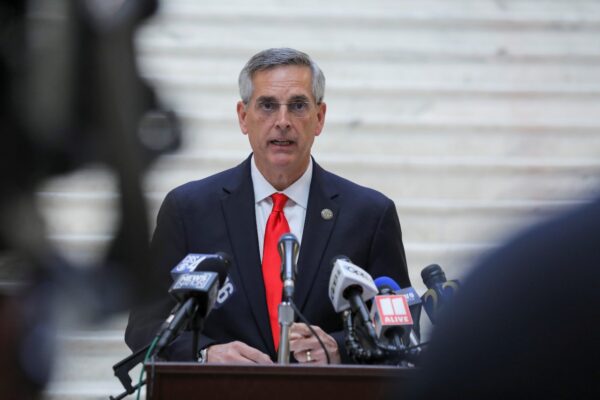
As part of their plan to check the informant’s claims, True the Vote purchased cell phone data—emitted signals called pings—showing phone locations. The data—once acknowledged by Supreme Court Chief Justice John Roberts to be highly accurate—are created by phone apps and sold to brokers, usually for marketing purposes.
The purchased data allowed True the Vote researchers to establish “what devices were at a particular location at a particular time,” without disclosing “any private information about a person’s identity.”
By mapping 10 trillion cell phone pings, True the Vote found that “in six counties in and around Atlanta, 552,987 cell phones came within a narrowly defined distance of ballot drop boxes” during early voting, the complaint states. “However, 242 unique devices made repeat trips to drop boxes averaging 23 trips each,” and “also went repeatedly, averaging eight trips each, to specific NGOs.”
By matching that time-stamped cell phone information to surveillance video at dropboxes, True the Vote researchers observed people stuffing in multiple ballots, the complaint states. Many of the cars used by those ballot handlers seen in the videos were rental cars, and ballot handlers often could be seen photographing the dropboxes, a practice the informant said was necessary for payment, the complaint states.
True the Vote dubbed the ballot carriers “mules.” The organization repeated the work in key areas of the five swing states, identifying more than 2,000 so-called mules.

In Georgia, “these 242 individual devices went to drop boxes a total of 5,668 times with approximately 40% of the visits occurring between the unusual hours of 12:00 a.m. and 5:00 a.m,” the True the Vote complaint states.
And in December 2020, “after Arizona authorities announced that fingerprints on absentee ballot envelopes helped uncover an illegal ballot harvesting scheme in that state,” some “individuals depositing ballots into drop boxes in Georgia are seen wearing blue surgical gloves. They often put them on just before picking up their stack of ballots and remove them as they exit the dropbox area,” the complaint states.
During the Georgia elections board meeting Tuesday, though they didn’t hear or consider any information provided in the True the Vote complaint, board members did vote to dismiss three complaints brought by a Georgia resident. A state investigator described his findings to the board one by one.
All three cases involved surveillance video of activity at ballot dropboxes, like that requested by True the Vote and shown in “2000 Mules.”
All three videos showed drivers getting out of cars and depositing multiple ballots in dropboxes, the investigator told board members.
He was able to track down the drivers of the cars using their license tags. In all three cases, the drivers’ stories checked out—they were depositing ballots belonging to family members, the investigator said.
State records confirmed that their family members’ ballots had been left in the drop boxes on the day the ballot carrier appeared on the surveillance video, the investigator told board members.
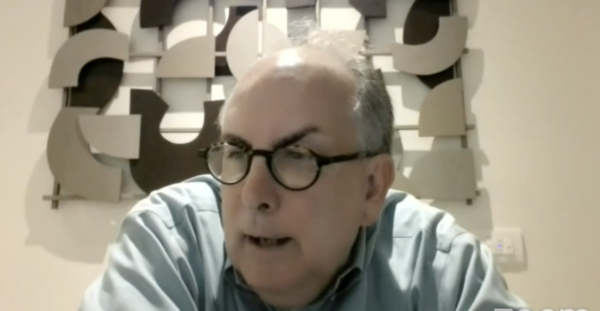
During a discussion of a case involving a white Ford SUV, board member Edward Lindsey asked the investigator, “Do you know whether or not this individual was one of those people whose car and car tag and picture was published publicly?”
“I have not seen the movie True the Vote (sic),” the investigator replied. “But I did see a True the Vote representative on Tucker Carlson [Tonight] show, and in the background they had that video clip playing of that subject and the white SUV.”
The clip was, indeed, shown on the FOX News program. But there was no allegation made that the driver was doing anything illegal. The video played, but wasn’t discussed during Engelbrecht’s interview with host Tucker Carlson on May 5.
The video, one of several surveillance clips shown in a montage during her interview, was used because it was clear enough to illustrate a ballot box being visited by people dropping off multiple ballots, Engelbrecht said.
That particular dropbox also was significant because it was visited by 271 people over one 25-hour period True the Vote monitored, Engelbrecht said. But when they watched a video of the ballot box being emptied by elections workers, it seemed to hold far more than 271 ballots.
When True the Vote requested and checked the log of that ballot box, they found there’d been 1,962 ballots deposited by those 271 people.
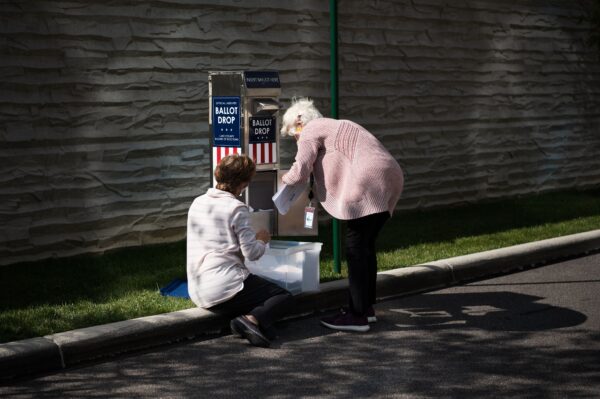
It’s legal for someone to deliver the ballots of family members living in the same home, but only if they add their name to the outside of the sealed ballot envelope.
When Engelbrecht asked the state for information about how many of those 1,962 ballots had the required signature, the answer was “none,” she said.
At Tuesday’s meeting, after a second complaint brought by a Georgia resident seemed to show no indication of misdeeds, Lindsey asked the investigator if the video clip referenced in the complaint had appeared “in any kind of documentary or anything like that? Do you know, in this situation, that happened again?”
“I have not seen any my personal self,” the investigator testified. “I have not watched that movie yet.”
Lindsey then chastised, “If you see something that you find questionable, turn it over to the authorities, but don’t simply go out and start questioning the integrity of individuals alleging crimes without any further evidence that could subject you to some kind of liability from that individual, who rightly might take exception to having their good name questioned.”
A third case alleging potential ballot-harvesting and brought by a Georgia resident also was dismissed after the same investigator said the ballot carrier’s story checked out.
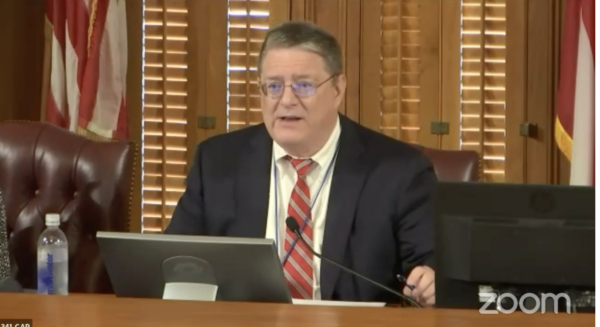
After the meeting, dozens of media outlets—including the Atlanta Journal-Constitution and the Associated Press—published news accounts saying the board had debunked claims made in “2000 Mules.”
It had not. Whether intentional or by mistake, the assertion infuriates Engelbrecht. But she remains optimistic.
She says she hopes the film will sound an alarm that wakes Americans to the fact that they must start paying attention to elections in this country, and that their involvement in elections can help restore integrity to voting. She hopes Americans will call for more state officials and law enforcement agencies to take True the Vote complaints seriously.
Currently, True the Vote is working with law enforcement agencies in Arizona, Michigan, and Wisconsin, Engelbrecht said.
She’s anxious to provide details to Georgia investigators that, she says, may show outcomes of the 2020 elections were changed by fraud. But she has to feel confident the whistleblower will be protected.
“We’ll provide everything,” she told The Epoch Times. But only when she’s confident turning it over won’t “get people hurt…or worse.”
Natasha Holt contributed to this report
